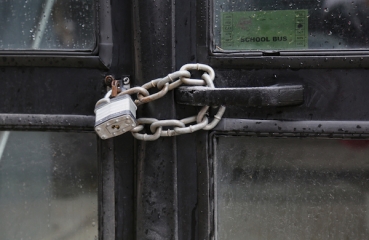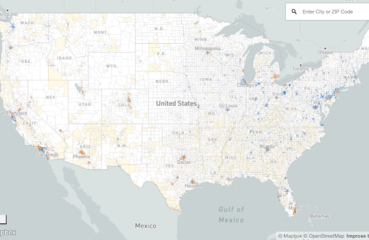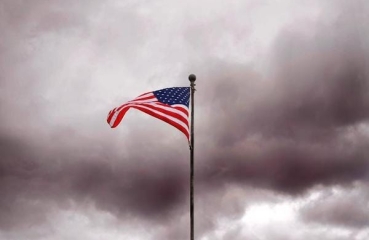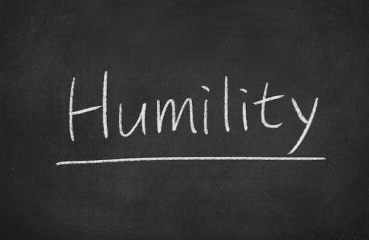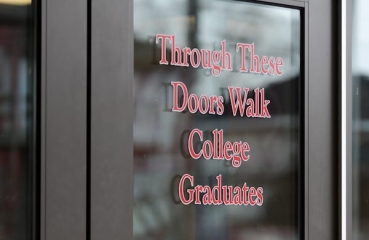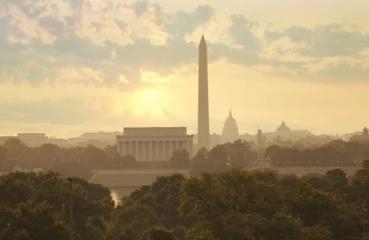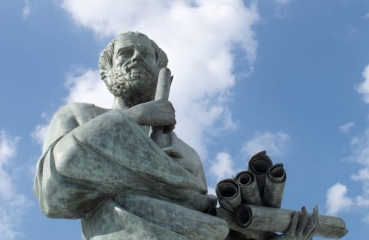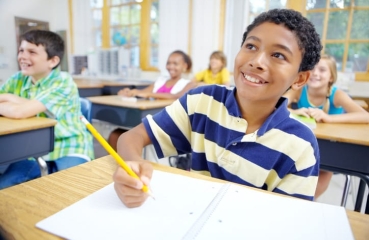The Education Gadfly Show: Teacher strikes, Democrats, and ed reform
On this week’s podcast, Shavar Jeffries, President of Democrats for Education Reform, joins Mike Petrilli and David Griffith to discuss what teacher strikes and Democratic presidential candidates’ support for them mean for education reform. On the Research Minute, Amber Northern examines whether efforts to boost academic achievement in kindergarten hinder the development of social-emotional skills.
Seeking a culture of improvement
Michael J. PetrilliIf this era is to become a Golden Age of Educational Practice, we need successful, evidence-based practices—to the extent that they actually exist—to spread far and wide.
Grade inflation is rampant, but accreditors can help
By Jeremy Noonan
Thinking about classroom practice: Five ideas for ed reformers
Robert PondiscioBy Robert Pondiscio
The Education Gadfly Show: The state of choice during National School Choice Week
On this week’s podcast, Mike Magee, CEO of Chiefs for Change, and Nina Rees, President and CEO of the National Alliance for Public Charter Schools, join Mike Petrilli and David Griffith to discuss National School Choice Week and the many hopeful developments on the charter schools front nationwide. On the Research Minute, Amber Northern examines whether schools of choice (both traditional and charter) “skim” students they perceive to be easier to educate or avoid those perceived harder to educate.
Identifying and encouraging students to earn industry-recognized credentials
Sophie SussmanBy Sophie Sussman
What options do students have in areas where private school choice proposals were defeated?
The Education GadflyThe Education Gadfly
Advanced content, academic achievement, and social-emotional outcomes in kindergarten classrooms
Jessica PoinerBy Jessica Poiner
The Education Gadfly Show: School choice’s hopeful new year
On this week’s podcast, Lindsey Burke, a director at the Heritage Foundation’s Center for Education Policy, joins Mike Petrilli and David Griffith to explain why school choice is poised to have a good 2019, despite its many headwinds. On the Research Minute, Amber Northern examines the relationship between automatic-college-admission policies and the college preferences of low- and high-income students.
Practicing humility when it comes to evidence-based practice
Michael J. PetrilliBy Michael J. Petrilli
ESSA seeks a well-rounded education. Louisiana seeks partners to explore new measures.
While the Every Student Succeeds Act (ESSA) gave states the opportunity to broaden and deepen their visions of what makes for an excellent education, researchers and states have both struggled to design measures and systems that take meaningful steps in that direction. Most of us would agree that primary grade literacy, knowledge of U.S.
Restorative justice isn't working, but that's not what the media is reporting
Last week, the first randomized control trial study of “restorative justice” in a major urban district, Pittsburgh Public Schools, was published by the RAND Corporation.
Which candidate would you want your child's school named after?
Robert Pondiscio“We ain't asking you to love us You may place yourself high above us Mr. President, have pity on the working man.” —Randy Newman, Mr. President (Have Pity on the Working Man)
The room where it happens: Changing students’ college outcomes by changing their self-perception
Over the past thirty years, I’ve witnessed one education reform effort after another. We’ve had standards-testing-accountability, school choice in innumerable forms, curriculum reform, teacher reform, and much more. All have been worthwhile and should continue. However, while we persist on these paths, I suggest we also look at reforming where our students are educated in the first place.
The Education Gadfly Show: Federal education policy in 2019
On this week’s podcast, Andrew Ujifusa, an assistant editor for Education Week, and one-half of the Politics K–12 team, joins Mike Petrilli and David Griffith to explain why we wonks shouldn’t completely ignore Washington in the coming year. On the Research Minute, Amber Northern counts down the five most influential education studies of 2018.
Unsolicited advice for discipline reformers—from a wannabe
David GriffithJust before Christmas (or about ten thousand news cycles ago) the Trump administration took the widely anticipated step of reversing the Obama administration’s much-debated guidance on school discipline, the essential goal of which was to pressure school districts to address the well-documented and longstanding r
How to get schools to use practices that work
Michael J. PetrilliBefore the holiday break, I wrote a series of posts discussing how we might turn the “End of Education Policy” (as I see it) into a Golden Age of Educational Practice. It’s time to pick up where I left off.
Rekindling moral education: A worthy challenge for schools of choice
Chester E. Finn, Jr.Late December brought not one but two excellent disquisitions on moral education, both the importance of rekindling an emphasis on it in American schools and some thoughtful advice as to how to go about it.
The effects of Pittsburgh's new restorative justice program
Jessie McBirney“Restorative practices” are an increasingly popular alternative to suspensions. To examine the effectiveness such practices, researchers at the RAND Corporation studied Pittsburgh’s new restorative justice program. It’s the largest study of its kind, and the first randomized control trial of this disciplinary strategy—and unfortunately, the results are decidedly mixed.
Is 2019 the year education reformers fold or double down?
A month ago, a prominent philanthropist described today’s education reform climate to me as “The Empire Strikes Back.” I had to acknowledge that 2018 capped off an extraordinary run for opponents of education reform. If only the American public understood how high the stakes are as we enter 2019.
Three men with a shot at being the next education governor
Dale ChuThe ringing in of the new year brings a changing of the guard as twenty new governors take office. This new cohort could bring new opportunities for education reform, but there are indications that they may be less enthused than their predecessors were on the issue.



